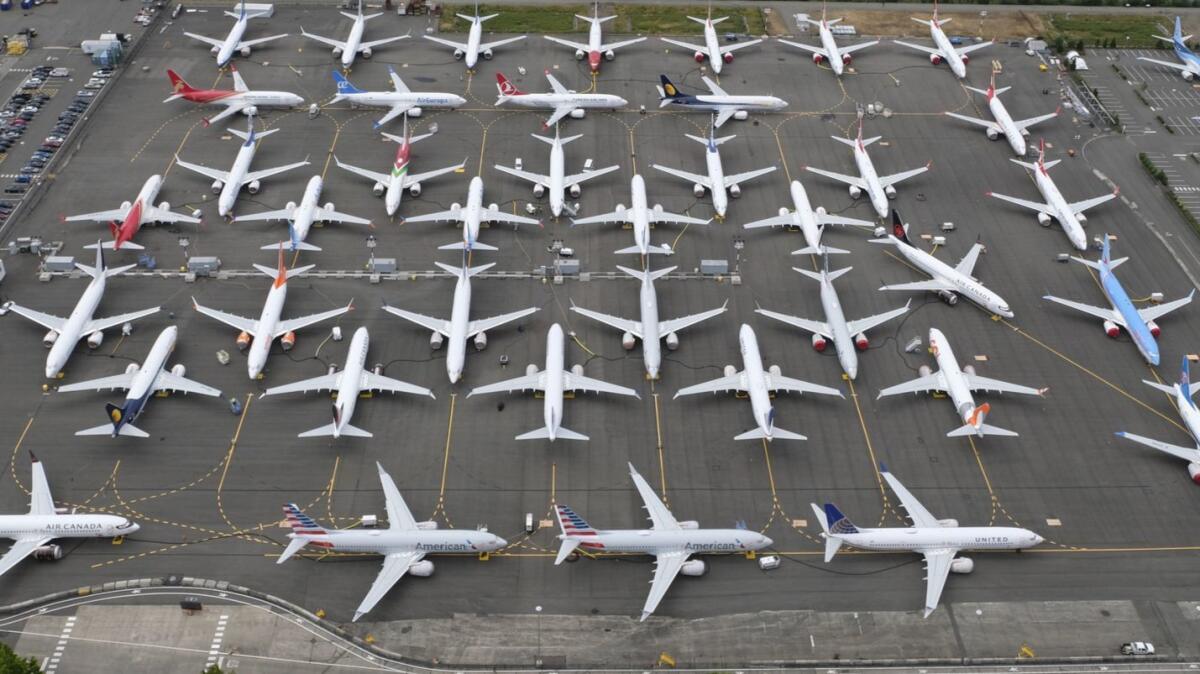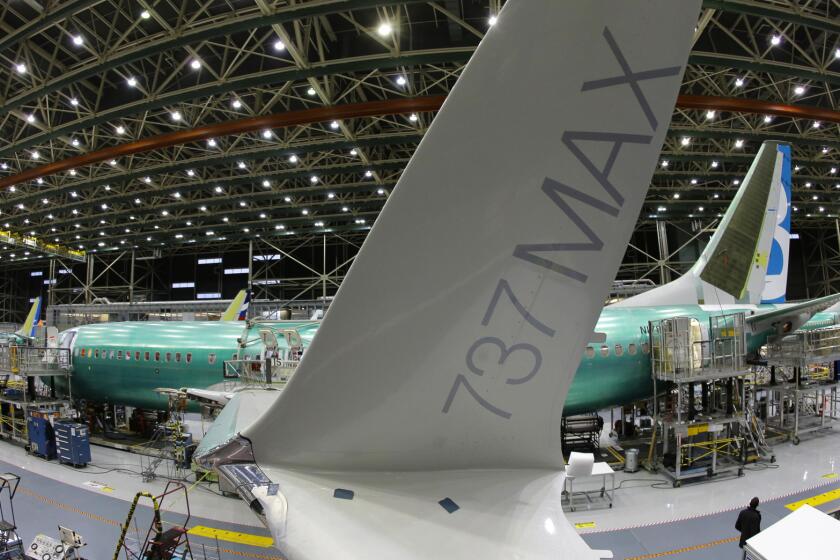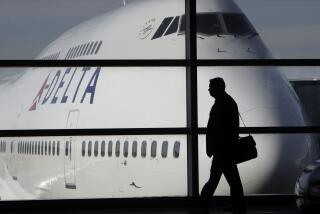Boeing finds new software flaw that may further delay the return of 737 Max

- Share via
Boeing Co. has identified a new software flaw in the grounded 737 Max that will require additional work, possibly further delaying the plane’s return to service.
The company has alerted the Federal Aviation Administration and is notifying customers and its suppliers about the issue, it said Friday in an emailed statement. Boeing’s top-selling jet was grounded March 13 after two fatal crashes involving a flight-control system.
The issue involves how software on the plane checks itself to ensure it’s receiving valid data, said a person familiar with the issue who wasn’t authorized to speak publicly about it. The issue occurs when the system is initially powered up, the person said.
“We are making necessary updates and working with the FAA on submission of this change, and keeping our customers and suppliers informed,” Boeing said in its statement. “Our highest priority is ensuring the 737 Max is safe and meets all regulatory requirements before it returns to service.”
Boeing cut corners to get the 737 Max on the market fast. A company long run by engineers for engineers is now a company run by corporate bureaucrats.
The FAA didn’t comment directly on the latest issue to arise on the problem-plagued plane.
“We continue to work with other international aviation safety regulators to review the proposed changes to the aircraft,” the agency said in an emailed statement. “Our first priority is safety, and we have set no time-frame for when the work will be completed.”
Boeing’s stock fell 2.4% on Friday. The company’s long-term issuer default rating was downgraded by Fitch to A-minus from A.
The grounding of the 737 Max is costing Boeing billions of dollars. The software problem was discovered during the final validation review process of the software updates being installed on the plane, the person said.
It’s unclear how long the repair will take. Software systems on aircraft require a far higher degree of reliability and checks before approval than most consumer products do. But the issue could be relatively narrow and, therefore, not nearly as complex as other work on the software.
The discovery has already pushed Boeing’s work back at least a week, said another person familiar with the matter who also wasn’t authorized to speak about it. It’s unclear how much longer it will take to complete fixes, the person said.
The issue is in the plane’s flight-control computer software. It was confined to how it performs validation checks during startup and doesn’t involve its function during flight, the people said.
The problem came to light when the latest version of the software was loaded onto an actual aircraft, according to one of the people. While it has been tested on planes in flight, most of the software reviews have occurred in a special simulator used by engineers on the ground.
Airlines have already built months of delay into their schedules to resume flying the plane, so it’s possible the software work won’t require additional changes. Southwest Airlines Co., American Airlines Group Inc. and United Airlines Holdings Inc. have said they won’t fly the plane again until June.
Boeing has been working for more than a year on fixing software to ensure that a flight-control system that pushes down the plane’s nose automatically — and was linked to both fatal crashes, which killed a total of 346 people — is safe.
During the process of assessing the plane last year, Boeing discovered another issue and had to redesign its flight-control computers. The reworking of that software is one of the reasons the repairs have taken so long.
The crashes of a Lion Air 737 Max on Oct. 29, 2018, and an Ethiopian Airlines 737 Max on March 10, 2019, both occurred shortly after takeoff when a flight-control computer program known as the Maneuvering Characteristics Augmentation System, or MCAS, repeatedly pushed the planes into dives. Pilots in both cases were able to temporarily maintain control, but eventually the jets entered steep dives and crashed.
More to Read
Inside the business of entertainment
The Wide Shot brings you news, analysis and insights on everything from streaming wars to production — and what it all means for the future.
You may occasionally receive promotional content from the Los Angeles Times.











